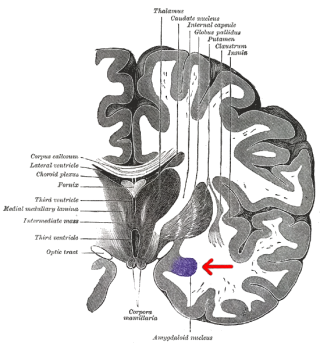Anger
The Surprising Upside of Anger for Collectors
Anger can act as a catalyst for constructive action in challenging situations.
Posted November 6, 2023 Reviewed by Davia Sills
Key points
- Anger is usually thought to be a negative emotion that one should avoid.
- However, it can spur some people into positive action.
- Research and personal experience show how anger can be motivating in the world of collectors.
Though we usually think of positive emotions as being the most beneficial to us, occasionally, a negative sneaks into our psyche that acts the same. Experiments to demonstrate this were recently completed by Lench et al. (2023) and published in the Journal of Personality and Social Psychology.
The Research
In a compelling series of experiments involving over a thousand students, the Lench et al. researchers embarked on a quest to understand how emotions impact cognitive performance. Two particular assessments stood out.
The first experiment placed participants before a series of images that were pre-selected to evoke a range of emotions, including anger. Intriguingly, it was noted that those who encountered the anger-inducing images were more adept at cracking challenging anagrams as opposed to those who were subjected to other emotional stimuli. This suggests a link between anger and an increased capacity for persistence, as those riled by the images exerted more effort into the complex tasks at hand.
In a separate but equally fascinating trial, the participants again were exposed to anger-provoking visuals, but this time while navigating a video game laced with traps in the form of flags. Those who had been primed with anger were remarkably more successful at dodging these obstacles. The researchers construed this to mean that the heightened physical arousal, typically associated with anger, could actually be harnessed to enhance performance in several tasks requiring vigilance and a rapid response.
These insights paint a picture of anger not just as a raw, unbridled emotion but as a potential catalyst for constructive action in challenging situations.
Reflections on Anger’s Role in My Collecting Journey
Reflecting on my journey as a collector, it’s clear that anger has, at times, been a silent partner in my decisions. On one occasion, I discovered that a ceramic piece I purchased came with a replacement lid, a detail the seller had failed to mention. Being relatively green in the world of collecting at the time, I didn’t recognize the mismatch myself. By the time I did, years had passed, and seeking a return seemed futile. Yet, this episode left a lasting impression; I consciously chose not to patronize that dealer again. This decision to distance myself from the seller was a direct outcome of my irritation—a clear demonstration of how anger can propel collectors to take decisive actions.
An even more poignant example was when a dealer cast doubt on the authenticity of one of my pieces. Feeling insulted and fueled by indignation, I was driven to validate the piece’s authenticity. This quest for truth led me to collaborate with Jennifer Mass, an expert from Winterthur. A journey to Winterthur ensued, culminating in a thorough analysis of the piece. The findings were significant enough to be published in the magazine Antiques in 2011. Had it not been for the dealer’s skepticism, I might never have undertaken such extensive research. Ultimately, this episode of anger-inspired action enhanced the provenance of my porcelain, securing its undisputed authenticity for future discussions.

Understanding the Underpinnings of Anger
Anger triggers a fascinating biological cascade within us. It’s the amygdala, an almond-shaped cluster of neurons in the brain, that lights up when we’re angry. This tiny but mighty region is also the ignition point for our primal “fight-or-flight” reflex, which floods our system with stress hormones like adrenaline. This reaction is an intrinsic part of our neural wiring, a testament to how deeply embedded anger is in our physiological makeup, influencing both our brain’s responses and the overall reaction of our bodies.
Summary
This article discusses the unconventional benefits of anger, particularly in the context of collectors. Research by Lench et al. (2023) in the Journal of Personality and Social Psychology demonstrated that anger could enhance performance, as evidenced by experiments with over a thousand students.
In practical terms, I connect Lench et al.’s research with personal collecting experiences. Here, I note that anger prompted more careful future dealings and rigorous verification of the item cited and several others, leading to a better-documented collection on my part.
Regarding the mechanism, anger activates the amygdala, triggering a fight-or-flight response and heightening physical arousal, which can inadvertently benefit collectors—or anyone—by driving them to take action that they might otherwise not pursue.
References
Heather C. Lench, Noah T. Reed, Tiffany George, Kaitlyn A. Kaiser, Sophia G. North. (2023) Anger has benefits for attaining goals. Journal of Personality and Social Psychology; DOI: 10.1037/pspa0000350.
Shirley M. Mueller (2011) Fake George Washington Service Pieces: The Chinese Export Order of Cincinnati Re-done. The Magazine Antiques, July-August, pp. 83-84.


